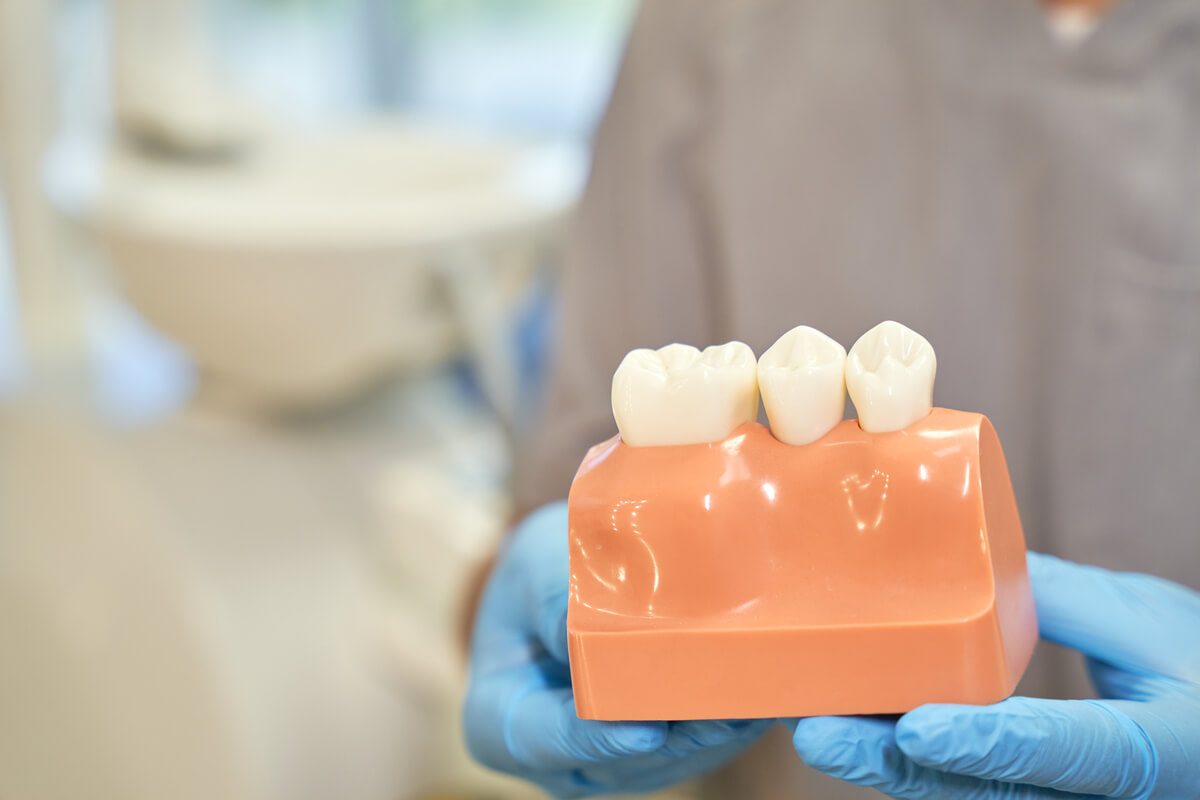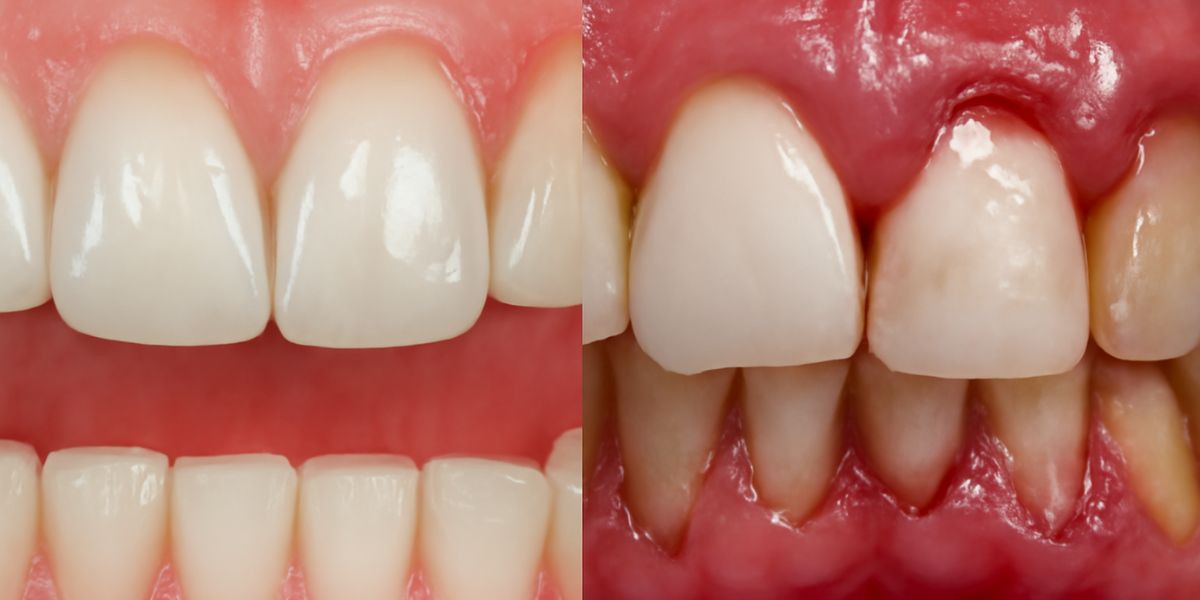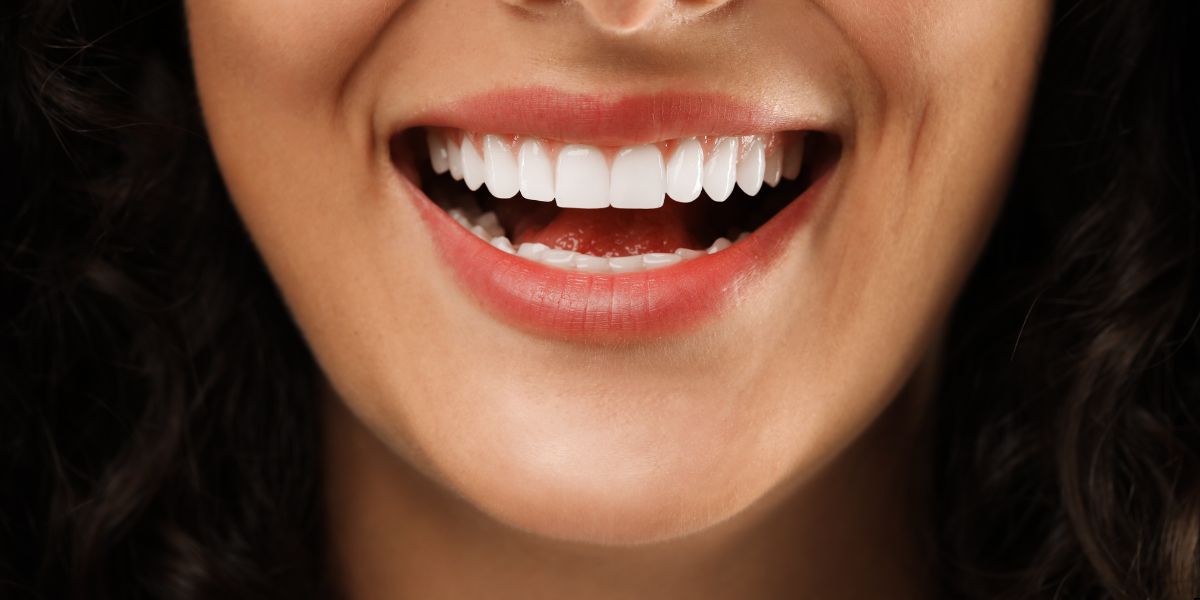En el artículo de hoy te contamos qué es la periodoncia y cómo se realizan los tratamientos periodontales.
La periodoncia es una especialidad de la odontología que se enfoca en el diagnóstico, tratamiento y prevención de las enfermedades que afectan los tejidos que rodean y sostienen los dientes. Estos tejidos incluyen las encías, el hueso alveolar, el ligamento periodontal y el cemento radicular. ¿Quieres saber más? ¡Sigue leyendo!
Conoce aquí las diferencias entre periodoncia y endodoncia
¿Qué es la periodoncia?
Los tratamientos que realizan los periodoncistas se realizan para prevenir o tratar la retracción de encías, pérdida de hueso y la pérdida de dientes. Además, sirven para eliminar el sarro y evitar el sangrado de las encías.
Enfermedades que trata la periodontitis
Entre las enfermedades que trata la periodoncia encontramos la gingivitis y la periodontitis, enfermedades que empiezan dañando las encías y terminan destruyendo el hueso que sostiene las piezas dentales, incluso propiciando su pérdida.
- Gingivitis. Es una inflamación de las encías causada por la acumulación de placa bacteriana y sarro en la línea de las encías. Los síntomas más comunes incluyen encías rojas, inflamadas, sensibles y sangrado al cepillarse o usar hilo dental. La gingivitis es reversible si se trata a tiempo y con una buena higiene bucal.
- Periodontitis. Si la gingivitis no se trata puede progresar a periodontitis. En esta etapa, las bacterias y las toxinas que se encuentran en la placa dental invaden los tejidos periodontales más profundos, causando una respuesta inflamatoria y dañando el hueso alveolar y el ligamento periodontal. Con el tiempo, esto puede llevar a la pérdida de los dientes.
¿Cómo se realizan los tratamientos periodontales en el dentista?
Los tratamientos periodontales se realizan en distintas etapas y dependen de la enfermedad que sufra el paciente.
Evaluación y diagnóstico, la primera fase
El dentista o periodoncista realiza una evaluación completa de la salud periodontal mediante la inspección visual, la medición de la profundidad de las bolsas periodontales y las radiografías. Esto permite al especialista determinar el estado de las encías y el nivel de afectación del hueso alveolar.
Limpieza profesional
En la etapa inicial de la gingivitis, se realiza una limpieza profesional para eliminar la placa y el sarro acumulados en la superficie de los dientes y debajo de las encías. Esto ayuda a reducir la inflamación y mejora la salud de las encías.
Raspado y alisado radicular
En los casos que se detectan bolsas periodontales profundas y acumulación de placa bajo la línea de las encías, se suele realizar un raspado y alisado radicular. Este procedimiento consiste en eliminar la placa y el sarro acumulados en las raíces de los dientes y alisar las superficies para evitar que las bacterias se vuelvan a acumular.
Cirugía periodontal
En casos más avanzados de periodontitis, puede ser necesario realizar una cirugía periodontal para eliminar bolsas periodontales profundas y regenerar el tejido periodontal dañado. En algunos casos, también se pueden realizar injertos de tejido o injertos óseos para restaurar el soporte del hueso alveolar.
Cuidados recomendados tras los tratamientos periodontales
La prevención es clave para evitar la recurrencia de las enfermedades periodontales y mantener una sonrisa sana y funcional.
Una vez completado el tratamiento periodontal, es importante mantener una buena higiene bucal en casa, que incluya cepillado adecuado, uso de hilo dental y visitas regulares al dentista para revisiones y limpiezas profesionales. También puede ayudar el uso de irrigador dental, para completar la limpieza en el hogar.
Conclusión
Como ya hemos visto, la periodoncia es una especialidad de la odontología que se encarga del cuidado de los tejidos de soporte de los dientes. Trata enfermedades como la gingivitis y la periodontitis, y permite mantener una buena salud periodontal para preservar la funcionalidad y estética de la sonrisa.
Si experimentas síntomas de inflamación de las encías o cualquier otro problema periodontal, te animamos a visitar al dentista o periodoncista. En nuestra clínica dental en Granada podrás recibir la evaluación y tratamiento adecuados a enfermedades de las encías.






